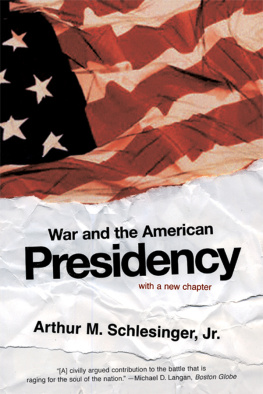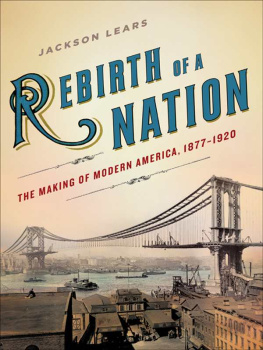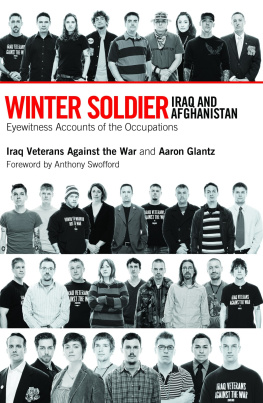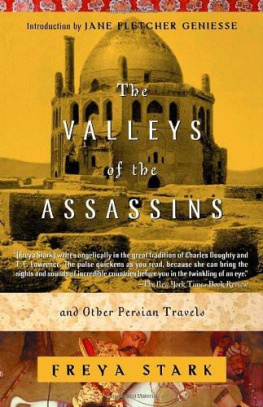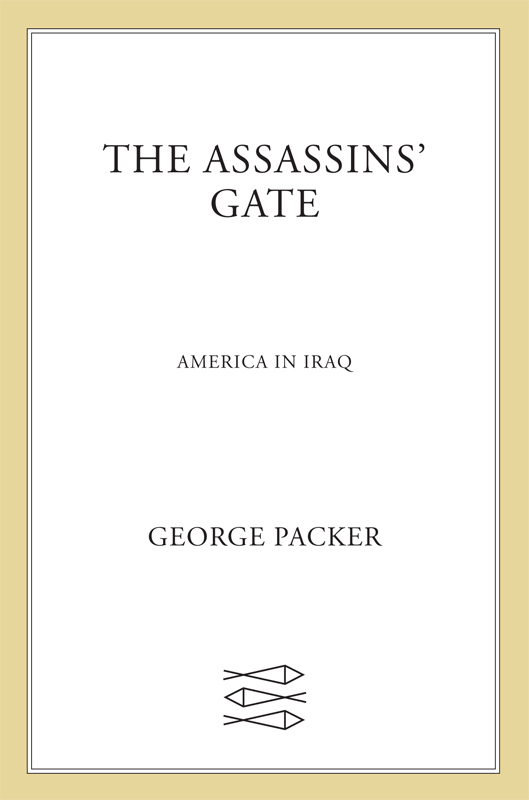
The author and publisher have provided this e-book to you for your personal use only. You may not make this e-book publicly available in any way. Copyright infringement is against the law. If you believe the copy of this e-book you are reading infringes on the authors copyright, please notify the publisher at: us.macmillanusa.com/piracy.
Contents
For Laura
Dive into the sea, or stay away.
Nizar Qabbani
P ROLOGUE
IN THE SHADE of a high sandstone arch, a Bradley Fighting Vehicle and a platoon of American soldiers from the First Armored Division guarded the main point of entry into the vast and heavily fortified Green Zone along the west bank of the Tigris River, where the Coalition Provisional Authority governed occupied Iraq. When I arrived in Baghdad in the summer of 2003 and first saw the arch, I mistook it for one of the citys antique gates, built during the time of the caliphs to keep out Persian invaders. The American soldiers referred to it by a name that seemed to have come straight out of the Thousand and One Nights. They called it the Assassins Gate.
Early every morning, before the sun grew dangerous, crowds of Iraqis gathered at the Assassins Gate. Some were job seekers; others were protesters carrying bannersPlease Re-open Our Factories, We Wish to See Mr. Frawley. Demonstrators brought their causes here and sometimes turned into rioters. A man handed out copies of a table printed in English and Arabic and titled The Names of Victims of execution of my family. Many people carried letters addressed to L. Paul Bremer III, the top civilian administrator in Iraq. With the old order overthrown, the Baath Party authorities purged, and the ministries stripped bare by looters, most Iraqis didnt know where to take their grievances and petitions, where to unload the burden of their personal histories. So, like supplicants to the caliph of ancient Baghdad, they brought them directly to the front gate of the occupation. But few Iraqis had the credentials to enter the Green Zone, and interpreters at the gate were rare. The Iraqis stood on one side of coils of concertina wire, gesturing and trying to explain why they needed to get in; on the other side stood Americans doing twelve-hour shifts of checkpoint duty in body armor, keeping them out.
One day in July, a tiny woman in a salmon-colored veil stepped out of the crowd and thrust a handwritten letter up at me. She was a schoolteacher, about thirty, with glasses and thick white face powder and an expression so exaggeratedly solemn that she might have been a mime performing grief. The letter, which was eighteen pages long, requested an audience with Mister respectable, merciful American ambassador Pawal Bramar. It contained a great deal of detailed advice on the need to arm the Iraqi people so they could help fight against the guerrilla resistance. The teacher, who was well under five feet tall, wanted permission to carry an AK-47 and work alongside American soldiers against the beasts who were trying to restore the tyrant or bring Iranian-style oppression. She showed me the fake gun permit drawn up to illustrate her desire. She had left her position teaching English at a girls school in the Shiite slum called Sadr City, rather than submit to the dictates of the radical Muslims who had taken charge after the overthrow of Saddam and ordered the staff to poison the girls minds against the Americans.
In the beginning, the Americans treat Iraqi people well, the teacher said. But later, because Iraqis are beasts, they attack Americans and kill them, and this will affect Americans psychology badly and so they live in more isolation from Iraqi people. She had informationit came from the most reliable source in Baghdad, she said, the children in the streetthat the tyrant and his followers were cutting off the heads of Americans (this was almost a year before the first known beheading in Iraq). The stories had made her ill. She was having trouble sleeping, she said, and had all but stopped eating.
A man with a cane hobbled over from the line. His left hand, wrapped in a bandage, was missing the thumb. He explained to the teacher in Arabic that his father had been killed by a missile in the Iran-Iraq War, that he had been paralyzed in a car accident while fleeing Kuwait at the end of the Gulf War, and that at some point he had lost the piece of paper entitling him to hospital care. Now that the Americans were in charge, he felt emboldened to ask for another copyand so he had come to the Assassins Gate. The man, unshaven and wretched looking, began to cry. The teacher told him not to be sad, to trust in God, and to speak with the American soldiers at the checkpoint. He shuffled back into line.
Please, sir, can you help me? she continued. I must work with Americans, because my psychology is demolished by Saddam Hussein. Not just me. All Iraqis. Psychological demolition.
Our conversation was brief, and it would have been briefer if my driver and translator, both of whom thought the woman completely insane, had succeeded in pulling me away at the start. Months later I saw her again: Somehow she had landed a job translating for the American soldiers who inspected IDs and searched people entering the Green Zone through another checkpoint. She had grown fat and acquired a pair of designer sunglasses.
I seldom think about Iraq without remembering the schoolteacher standing outside the Assassins Gate, the abrupt intensity of her stare and speech, the sense that there was madness and truth in her all at once. That first summer after the Americans arrived, Iraq had the heightened, vivid, confused quality of a dream, washed in the relentless yellow sunlight. The hesitations and niceties of normal life dropped away. Something extraordinary was happening. No one knew what it was or how it would go, but it mattered more than anything and there wasnt much time.
Later on I learned that Id been wrong about the Assassins Gate. It wasnt ancient; Saddam built it some years ago in grandiose imitation of Baghdads classical entrances. It wasnt even the Assassins Gatenot to the Iraqis. The name drew blank looks from them, and then annoyance. They called it, more prosaically, Bab al-Qasr, the Palace Gate, because the road that passed under the arch led to Saddams Republican Palace, a mile or so away, where the occupation authority had its headquarters. Assassins Gate came from the nickname of the soldiers positioned there, who belonged to Alpha Company: A for Assassins, like Kilroy was here. It was an American invention for an ersatz Iraqi monument, a misnomer for a mirage. Iraqis complained about the way the U.S. military renamed their highways and buildings and redrew their district lines. It reminded them that something alien and powerful had been imposed on them without their consent, and that this thing did not fit easily with the lives theyd always known, it pulled and chafed, though it had also relieved them of a terrible curse. The mesh demanded judgment and patience from both sides, and already in that first summer these were in short supply.
The name Assassins Gate stuck with the Americans in Iraq, and eventually with some of the Iraqis, too. The original assassins were twelfth-century Muslim heretics; they were said to consume hashish in gardens of earthly delights before going out to kill, and they made murder such a public spectacle that it became a form of suicide as wellthe assassin set upon his target at noon Friday in the mosque with a knife, knowing he too would die. Over time in Iraq, as the violence surged, and the Assassins Gate disappeared behind watchtowers and concrete blast walls, and everything began to deteriorate, the name came to fit in a peculiarly evocative way. I imagined a foreign traveler walking under the glare of the sun through the front gate of an old walled city, believing that he was safe and welcome in this unfamiliar place, not knowing that hidden dangers awaited him just inside. At other times, it was the foreigner I saw as the assassin, taking aim from his perch high up on the arch.








